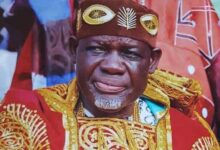
One of the weirdest radio programmes on the BBC’s Radio 4 network (which is transmitted to UK listeners) is a programme called Saturday Live. It almost always manages to spring a surprise on its listeners.
I was pondering over the strange occurrences it covered in a particular programme when the thought struck me: “You have walked into a few coincidences of your own, yourself, haven’t you?”
Yes! The first was in Beirut, Lebanon, in 1958. It was my first trip outside Ghana. I was making my way to Moscow, for the first Afro-Asian Writers’ Conference in Tashkent, USSR. I left Accra by Air Liban, and we were to spend a night in Beirut and fly on to Cairo the next day, en route to Moscow.

We got to Beirut to find that American troops were all over the place and that Lebanese snipers were welcoming them with pot-shots. Throughout the night, we heard the sound of gunfire. God Coaster (now newly-Ghanaian) I had never heard guns fired in anger before! Ei, so this was what “unrest” sounded like? Hmmm!
In Cairo too, I had a coincidence of sorts. I had put on my kente and taken a walk to a park near my hotel. And people came to me from everywhere to feel the texture of the kente and I enjoyed being fussed over. When I returned to my hotel, however, I found that – I couldn’t gain entrance to it! Its entrance had been blocked off because a man called Ferhat Abbas was being installed as prime minister of the Algerian Provisional Government in exile! Had I not been wearing my kente, I might not have been allowed back in!
On the plane to Cairo from Moscow, we stopped in Rome for a while, where I saw headlines reporting that Boris Pasternak, the Russian writer, had won the Nobel Prize for Literature. I, of course, knew nothing about the furore Pasternak had caused with the publication of his novel Dr Zhivago in the West, and I pestered my hosts at the Soviet Writers’ Union to arrange an interview with Pasternak for me! They, of course, regarded Pasternak as a renegade and the interview didn’t happen.
One day, the Russians made up for my Pasternak disappointment by announcing that said they were taking us to a reception in the Kremlin, headquarters of the Soviet Government. So out came my kente again, though the temperature was around freezing point. I wore a pullover beneath the cloth and also wrapped a scarf tightly around my neck. Ghanaians would have laughed at me, but the cold made me care less about that !I
We were in the Kremlin reception hall sipping our drinks when the whole place suddenly fell silent. Everyone then broke into applause. It was the Soviet leader, Nikita Khrushchev, himself who had made an entrance. At that time, “Mr K”, as he was known to the world press, was perhaps the most vivacious politician in the world. One could hardly tune to a foreign news broadcast without hearing Mr K’s name. As I made my way towards the circle he was in, someone who liked my get-up propelled me forward towards Mr K. This was being done quietly to other African delegates as well, and very soon, Mr K was surrounded only by a group of African delegates, including the Senegalese writer and film-maker, Sembene Ousman and two Angolans, Mario de Andrade and Viriato da Cruz,
I coyly bent down to admire the Order of Lenin on Mr K’s chest, and at that moment, a photographer flashed his camera. The picture of me bending over a Mr K surrounded by African writers was widely circulated. It made it to the back page of The Times [of London], which, at that time, was one of the most respected newspapers in the England. The director of the Ghana Information Services Department, the late Jimmy Moxon, generously saved a copy of the paper for me and called me to his office when I returned to Ghana and gave it to me. I was glad to be able to repay his kindness by writing an appreciative obituary of him for the Independent newspaper of London, when he passed.
Mr K told the African writers who surrounded him that he could see in us the youthful vigour and strength that existed in the whole of Africa, and that it convinced him that Africa would rise up to play an important role in world affairs. This was very nice to hear from a powerful world leader like Mr K, and I cabled it to Radio Ghana, which broadcast parts of it in a news bulletin. They didn’t mention my name, and only attributed the story to “a Radio Ghana Correspondent”. Nevertheless, I was pleased as punch when I came back as my work-mates allowed me to enjoy bragging rights in the form of having been the firstl “Foreign Correspondent” of Radio Ghana! Quoting Mr K directly in a Radio Ghana news bulletin? Yeah—that was me!
From Russia, I was invited to China by the Chinese delegate to the Tashkent Afro-Asian Writers Conference, a polished poet/diplomat by the name of Yang-Shuo. I spent three weeks in China, having an idyllic time. At one banquet I attended, a score of different, extremely delicious dishes, were served!. I then travelled to Wuhan, a city on the Yangtze river. In a park, we were suddenly surrounded by a group of Young Pioneers, red scarves gleaming around their necks, who sang to us. One of the songs was so melodious that I can still sing it! It was called yeesuchii-hao : “socialism is good”.
In Beijing, I was fortunate enough to meet the Chinese prime minister, Mr Chou en-Lai, one of the most skilful diplomats in the world. He gave us an inkling to Chinese thinking by telling us that “in China, we don’t think in terms of today or tomorrow or even decades. We think in terms of thousands of years.” No wonder his foresight enabled him to invite the American Secretary of State, Henry Kissinger, and later, President Richard Nixon, to China. Thus, Mr Chou was the genius who paved the way for the entry of China fully into the international arena. It was his diplomatic skill that produced the results which we see today, with China having emerged as a major, if not the major, economic player in the world. Were Mr Chu En-Lai alive, all the Chinese gold-diggers who have helped to turn our water-bodies into mud, through galamsey, would have been ordered to go back to China to be educated in how not to disgrace China in the eyes of China’s genuine friends, the African people.
BY CAMERON DU0DU


